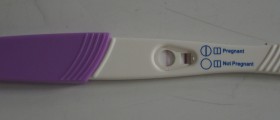
Gamma-linolenic acid stops the production of the cytokines that cause inflammation, and enhances the production of the cytokines that stop inflammation. This effect occurs all over the user's body. In the cervix, the mucus lining contains fewer cytokines that may damage sperm, and more cytokines that prevent damage to sperm. Evening primrose oil also encourages the production of the "egg white mucus," a fluid that is thin, white, and "stretchy." The "stretch" of the cervical mucus is critical to reproduction, as it may help the sperm propel themselves forward with a minimum expenditure of energy, allowing more sperm to reach the egg for fertilization. And because the mucus contains fewer inflammatory cytokines, sperm may live for as long as five days, rather than the usual three. This gives more sperm more opportunities to reach the egg. How can a woman recognize the need for evening primrose oil?
Most authorities in natural health concur that women who benefit most from the use of evening primrose oil in the promotion of fertility are those who dry, thick, or brown cervical mucus. Taking evening primrose oil along with drinking more water will create cervical mucus that is more hospitable to sperm. It is important that women only take evening primrose oil during the first half of their periods, on the days from menstruation to ovulation. This is because evening primrose oil can stimulate uterine contraction. An overstimulated uterus can abort the newly fertilized egg. While, obviously, no clinical studies of this phenomenon have been or can be conducted, it is only commonsensical to make sure that evening primrose oil is not used when there is a change that conception has already occurred. There have been some incidents that suggest that women who have a seizure disorder should not take evening primrose oil. Otherwise, EPO is safe and effective when used during the first half of the monthly menstrual cycle.

















Your thoughts on this
Loading...